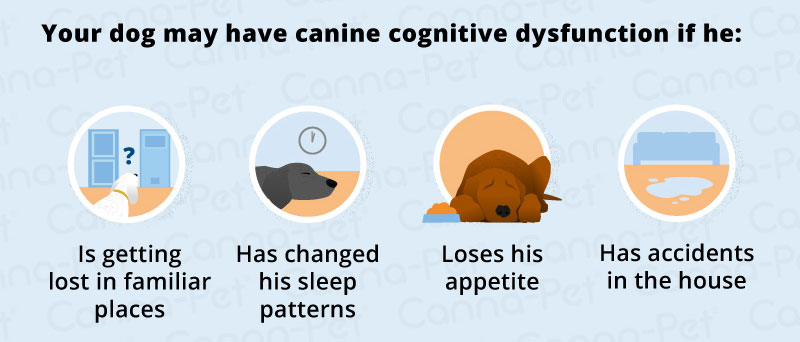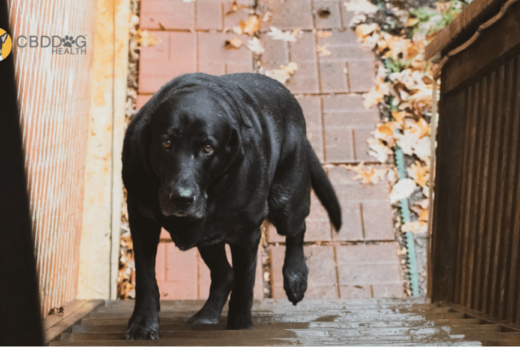Many pet owners wish that their dog could stay a puppy forever. However, just like humans, they inevitably will age and eventually slow down. While natural signs of aging are nothing to be alarmed about, if your dog’s personality or behaviors change, it might be something a bit more serious than just getting old. Your dog may be dealing with a disease called Canine Cognitive Dysfunction, or CCD.
What is Canine Cognitive Dysfunction?
Canine Cognitive Dysfunction is caused by physical changes to an aging dog’s brain. The condition will lead to changes in a dog’s awareness, memory, and ability to learn, which will cause his behavior to change. CCD most closely resembles dementia or Alzheimer’s in humans.
Initial symptoms of CCD are often mild, but they will gradually worsen over time, a condition called “cognitive decline.” Most dogs over the age of 10 will show symptoms of CCD. In fact, 50 percent of dogs over the age of 11 show signs of the disease, with the figure rising to 68 percent in dogs over the age of 15. Cognitive decline has been seen in dogs as young as six, so symptoms in a younger dog should not be ignored.

Signs of Dementia in Dogs
There are several symptoms that might be associated with cognitive decline in your dog. However, many of them can also be attributed to other medical conditions, so it is always best to see your veterinarian for a proper diagnosis.
That being said, here are some of the common dog dementia symptoms:
- Pacing back and forth or in circles (often turning consistently in one direction)
- Getting lost in familiar places, particularly in your own home or yard
- Staring into space or walls
- Walking into corners or other tight spaces and remaining there
- Appearing lost or confused
- Waiting on the wrong side of the door to go out
- Failing to get out of the way when someone opens a door
- Failing to remember routines, or starting them and only getting part of the way through
- Barking for no apparent reason and/or for long periods
- Ceasing to bark when she used to be very noisy
- Forgetting cues and trained behaviors she once knew
- Exhibiting motor difficulties like difficulty backing up
- Startling easily
- Getting less enthusiastic about toys or stopping playing altogether
- Showing an unwillingness to go outside or for a walk
- Performing repetitive behaviors
- Having trouble with eating or drinking, including difficulty finding their bowls, aiming their mouth, and keeping food in their mouth
- Losing appetite
- Failing to respond to her name
- Gets startled by lighting or the television
- Having difficulty getting all the way into bed
- Trembling for seemingly no reason
- Falling off of things
- Getting trapped under or behind furniture
- Sleeping more during the day and less at night
- Forgetting house training, despite how often it goes outside
- Having difficulty learning new tasks, commands or routines
- Seeking attention less; growing withdrawn
- Acting frightened of familiar people
- Having trouble with stairs
- Getting generally more fearful and anxious

One of the most common signs of CCD is when a dog seems to be getting lost in corners or behind furniture and starts waiting on the wrong side of the door. They will stand helplessly, seemingly unable to figure out the next step. Another is when dogs pace and wander around the house anxiously for no reason.
Your normally friendly dog may also suddenly stop seeking human companionship, or stop greeting family members as they used to. They will even walk away while being petted, generally a pretty alarming sign. Others may reverse their sleep patterns and sleep in the day and wander around awake and confused at night. They may also just sleep more overall.
Several potential symptoms are also associated with a wide variety of other conditions.
One particularly troublesome sign is when a dog seems to forget to eat, or have a general disinterest in their food. This can be connected to several other conditions, but is of concern because senior dogs do not have much reserves to live off of. You should see your vet immediately if your dog is not eating.





